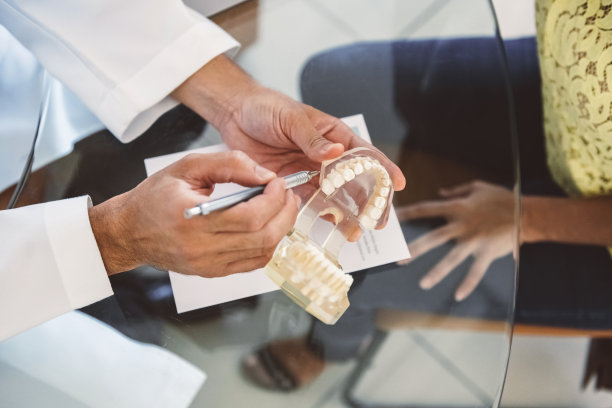Summary: Dental filling procedures are both common and essential in maintaining oral health. However, optimal care post-treatment is necessary to ensure the longevity of fillings and overall dental wellness. This article outlines four key guidelines: maintaining excellent oral hygiene, adhering to dietary restrictions, scheduling regular dental check-ups, and recognizing signs of complications. Each guideline serves to support the integrity of dental work and emphasize the importance of continued care for a healthy smile. By following these post-care practices, individuals can greatly enhance their dental filling experience and maintain a radiant smile for years to come.
1. Maintain Excellent Oral Hygiene Practices

Following a dental filling, maintaining proper oral hygiene is paramount to ensure the longevity of the filling. This begins with regular brushing, using a fluoride toothpaste. It is advisable to brush at least twice a day to help prevent plaque accumulation and subsequent decay around the filling.
Flossing also plays a critical role in oral care. Food particles and plaque can easily build up between teeth and near the fillings. Using dental floss or interdental brushes daily will help keep these areas clean, thereby extending the life of dental fillings.
Additionally, utilizing an antibacterial mouthwash can further aid in enhancing oral health. This product helps to reduce bacteria in the mouth, thereby lowering the risk of gum disease and cavities that can threaten the integrity of fillings.
2. Follow Dietary Restrictions For Fillings
Diet also plays a significant role in the care of dental fillings. After receiving a filling, it is advisable to avoid extremely hard or sticky foods, which can dislodge or damage the filling material. Foods like hard candies and ice should be avoided for a few days after the procedure.
Acidic foods and drinks, such as citrus fruits and sodas, can weaken the bonding agents used in filling materials. Limiting these items in your diet will help protect the fillings from wear and tear.
Staying hydrated with water is beneficial for oral health. Drinking water can help rinse away food particles and neutralize acids in the mouth, promoting a healthier environment for your fillings.
3. Schedule Regular Dental Check-ups
Another essential guideline for caring for dental fillings is to maintain regular dental check-ups. Visiting your dentist every six months allows for timely evaluations of both your overall dental health and the status of your fillings.
During these visits, dentists can identify any potential issues early, such as wear, cracks, or decay surrounding the fillings. Addressing these problems promptly can save you from more extensive and expensive treatments down the road.
Furthermore, professional cleanings provide an opportunity for your dental team to give personalized care recommendations. They can tailor their advice to your specific needs, helping to ensure the durability of your fillings and overall good oral health.
4. Recognize Signs of Complications Early
Being attentive to your oral health after receiving dental fillings is crucial. Its important to recognize signs of complications, such as sensitivity to hot or cold, pain at the site of the filling, or visible cracks. Early detection allows for prompt intervention and can prevent more serious issues from developing.
If you experience any discomfort that persists longer than a few days after the filling procedure, do not hesitate to contact your dentist. They can provide a thorough examination to determine if the filling is compromised or if there are any underlying issues that need attention.
Ultimately, being proactive about oral health will greatly contribute to the longevity of dental work. Taking responsibility for your dental care post-filling will ensure that your smile remains healthy and vibrant.
Summary:
Optimal care and maintenance of dental fillings are vital in prolonging their life. By maintaining excellent oral hygiene, adhering to dietary restrictions, scheduling regular dental check-ups, and recognizing early signs of complications, individuals can ensure their fillings serve their purpose effectively.
This proactive approach not only supports dental health but also contributes to overall well-being and confidence in ones smile.
This article is compiled by Vickong Dental and the content is for reference only
Vickong Dental
Vickong Dental is a large medical group established in Hong Kong in 2008 by professors from well-known medical universities in Guangdong and Hong Kong, as well as medical doctors from key national '985' universities (including Master's supervisors and senior professors). The chain of branches brings together expert dentists with PhDs and Master's degrees from Hong Kong and Mainland China, committed to providing high-quality dental treatment.
"Vickong Dental Practices the University Motto of 'Healing and Serving Society,' with a Stable Operation for Sixteen Years. It Has Been honored with Hong Kong Enterprise Leaders's Choice,' and is a Global Trusted Implant Center for the Nobel Implant System. Recommended by Hong Kong Metro Broadcast and Guangdong Television, it Serves Customers from Over Thirty Countries and Regions, Gaining the Trust and Favor of Citizens from the Guangdong-Hong Kong-Macau Greater Bay Area and Surrounding Cities.

Thousands of customers' unanimous praise
The most recognized and highly recommended dental service by customers in the Guangdong-Hong Kong-Macau Greater Bay Area
We Ensure You Receive Detailed Care and Attention Here
Hong Kong standards, Shenzhen prices, Your Trusted English-speaking dentists

Vickong Dental Medical-Grade Instrument Disinfection Process
Vickong Dental Medical-Grade Instrument Disinfection Process

Vickong Dental Chain: A Warm and Comfortable Environment for Treatment






Appointment Hours

Q&A
Why choose Vickong Dental?
Vickong Dental practices the university motto 「Medicine to Benefit Society」, with each branch bringing together highly qualified dentists with doctoral and master’s degrees from Hong Kong and the Mainland, and has maintained seventeen years of steady operation。Recipient of 「2024 Hong Kong Enterprise Leaders Brand」, 「2025 Hong Kong Enterprise Leaders Brand」, a Nobel Biocare Global Trusted Implant Center, and a brand recommended by Metro Radio Hong Kong and Guangdong TV。
To date, we have served customers from more than thirty countries and regions,earning exceptionally high word-of-mouth recognition and trusted recommendations from residents across the Guangdong-Hong Kong-Macao Greater Bay Area and surrounding cities
We have eight major branches in Zhuhai、Shenzhen,and a consultation and service assurance center in Hong Kong,so you can book a free consultation at any time for any questions,which is very reassuring.
If I do not accept the quotation after the CT scan, will I be charged??
No! As long as the actual treatment has not started, you will not be charged any fees.
Will there be any additional charges during the treatment process?
No, there won’t be any additional charges. Before treatment begins, we will clearly explain the treatment plan and its corresponding fees. Only after the patient agrees and signs the consent form will we proceed with the dental service.
Can I pay in Hong Kong dollars?
Yes. Vickong Dental accepts payment in Hong Kong dollars. The amount will be converted based on the exchange rate of the day, and the applicable rate will be clearly communicated to you in advance.
Can I reschedule my appointment at any time?
Yes. Please contact us via **WeChat** or **WhatsApp** as early as possible, providing your original appointment time and details, along with your preferred new date and time slot for rescheduling.













